Four years ago, I graduated from university and landed my first job as a content writer.
During that time, I have never quite experienced anxiety to a crippling extent, and could never really empathise with friends who’ve had it irrevocably affect their lives.
For one, I didn’t really care about many things in life. I was well into university, and extremely jaded – holding the same, indifferent attitude towards anything, even major academic milestones in university (deadlines, exams, graduation). I was also rather proud for being pretty level-headed and indifferent about most things at that point in time. (In hindsight, that was really immature, but we can only learn in hindsight)
So when the first signs of anxiety crept up, I wasn’t expecting how it would change my life. In the span of ten months into my first job, I developed a crippling anxiety that left me sometimes extremely dissociated, and at times struggling to breathe due to a panic attack.
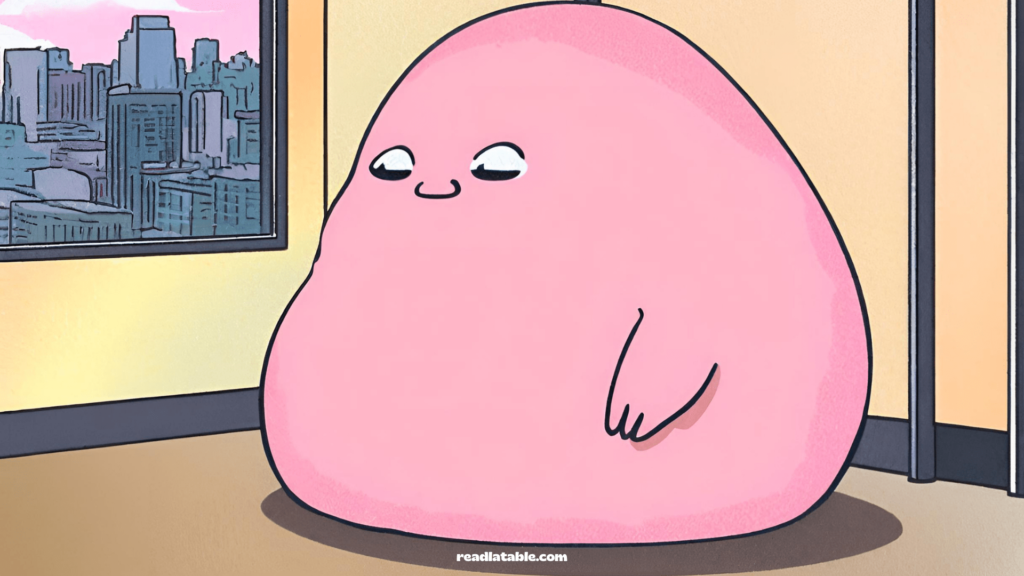
Source: Canva
This piece has been extremely difficult to write, given how personal it is; and I know that I run the risk of sounding like a spoiled, whiny millennial.
To be sure, it wasn’t just my job that resulted in me having anxiety, but a series of external and internal factors that resulted in me developing this mental health issue. I hope that sharing this experience will help others identify early signs of anxiety in the workplace, and to seek help before it gets worse.
What is anxiety? When does it become a disorder?
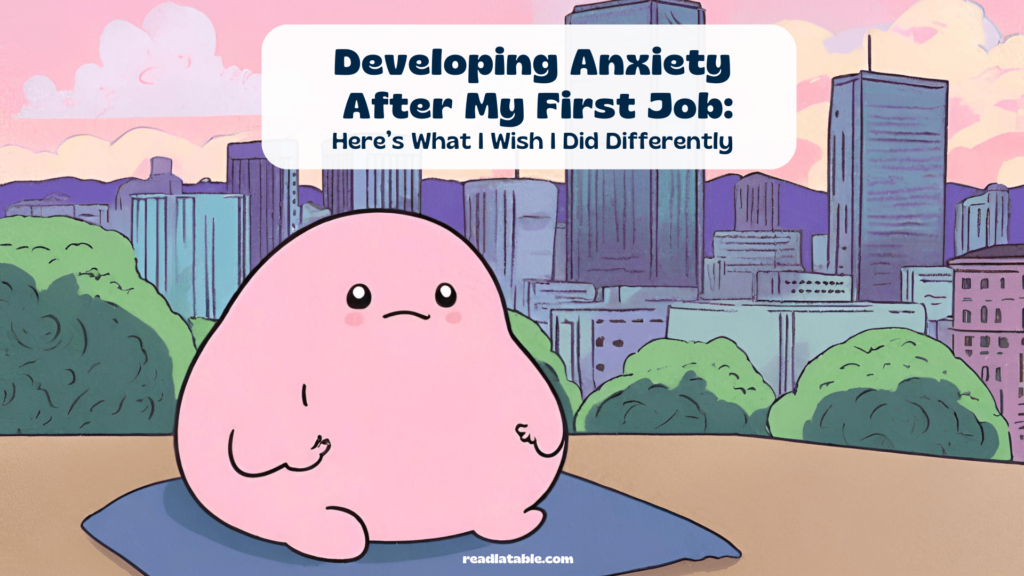
Source: Canva
Anxiety is a feeling of unease, such as worry or fear, that can be mild or severe. Everyone has feelings of anxiety at some point in their life – whether it is going on a stage to speak, or sitting for an exam. During these times, it is normal to feel anxious.
However, anxiety morphs into a disorder when it starts affecting your day-to-day life. Generalised Anxiety Disorder (GAD) is a long-term condition that causes you to feel anxious about a wide range of issues, rather than 1 specific event. People with GAD often feel restless and tense most of the time and this results in excessive worry over everyday issues that lasts longer than 6 months.
They sometimes have trouble concentrating, struggle with insomnia, and have to deal with physical symptoms such as heart palpitations.
Early signs of anxiety
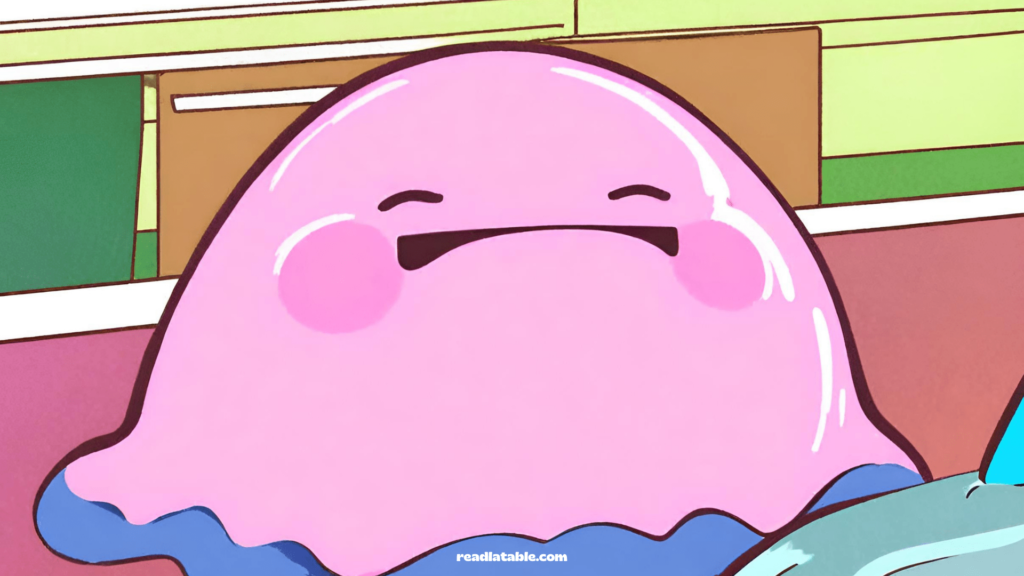
Source: Canva
As a budding writer, I’ve always been a bit precious over what I put out. Having trained in journalism during my university days, it’s been ingrained in me that words are powerful, and I have to pay attention to how I write about certain things, and how I frame certain perspectives. The priorities of a journalist and a content marketer are very different, and it took a bit of time for me to get used to the different types of rigor it takes to be a content marketer.
For one, my KPI to pass probation hinged upon whether or not I had an article that went viral on the internet. On the other hand, growing a platform aggressively meant that we had to put out content daily. It was nothing personal, just the demands of the job that is necessary to game the system.
Looking back, this has been a tough period of adjustment. I was constantly worried about the quality of my articles. Publishing articles even when I don’t feel 100% for it made me anxious and worried about getting certain information wrong. I was afraid that my thoughts were not refined, and I was also so afraid of what others would think of my work. What’s more, the nature of working in a start-up also means that things move fast, and you have to be able to execute, even when you don’t feel ready.
I remembered having to interview a multi-millionaire investor on a topic that I knew next to nothing of, and having to work the interview questions the night before. I was also tasked with being a public speaker at various events, where there were hundreds of participants.
I am grateful for the opportunities and was happy to take them on, but it unknowingly led to many nights of worrying that would later spiral into a condition that was difficult for me to control.
How it got worse
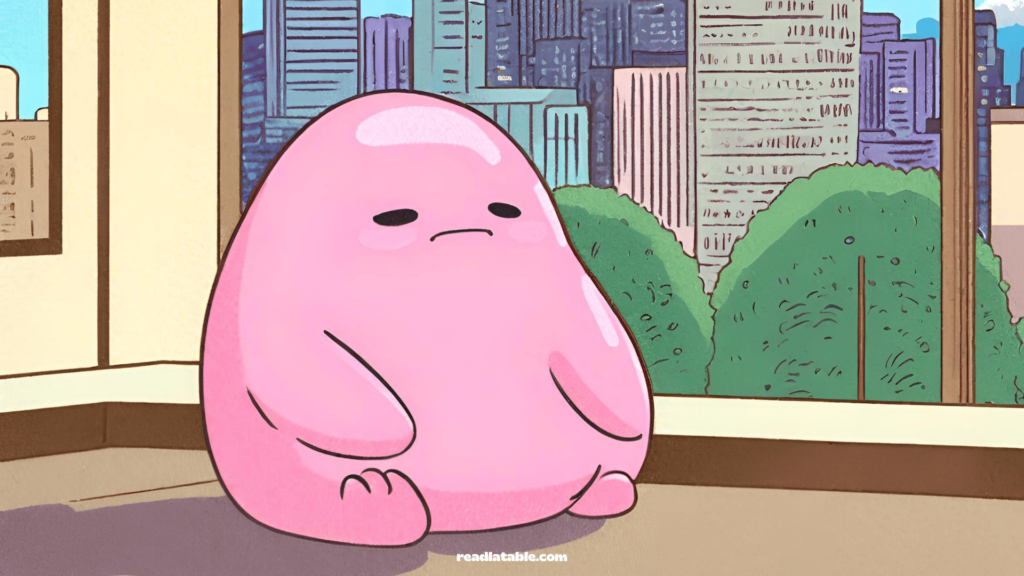
Source: Canva
Beyond that, I was eager to fit into my new job. I participated in lots of after-work activities with my colleagues, be it dinners, drinks after work, playing sports, or doing yoga, and I often leave work around 8/9 pm, sometimes 11 pm-12 am. While I had fond memories of some of these activities, I realised in hindsight that I’ve unknowingly revolved most of my life around work, or work-related activities.
Consequentially, as I threw myself completely into my job, my personal relationships began to crumble. I was constantly distracted when I was with my friends, family and partner.
It wasn’t as if I was thinking of work – I was just feeling absolutely tired that I started to disengage and dissociate from conversations with my loved ones. It was as if I was physically present, but my soul was somewhere else. During this time, I made people that I love feel that they didn’t matter, and it inevitably caused a huge strain on my relationships. As I desperately tried to salvage my relationships, the more anxious I grew. Soon, I had numerous sleepless nights, and days where I had random panic attacks
What I wish I had done differently when going into my first job
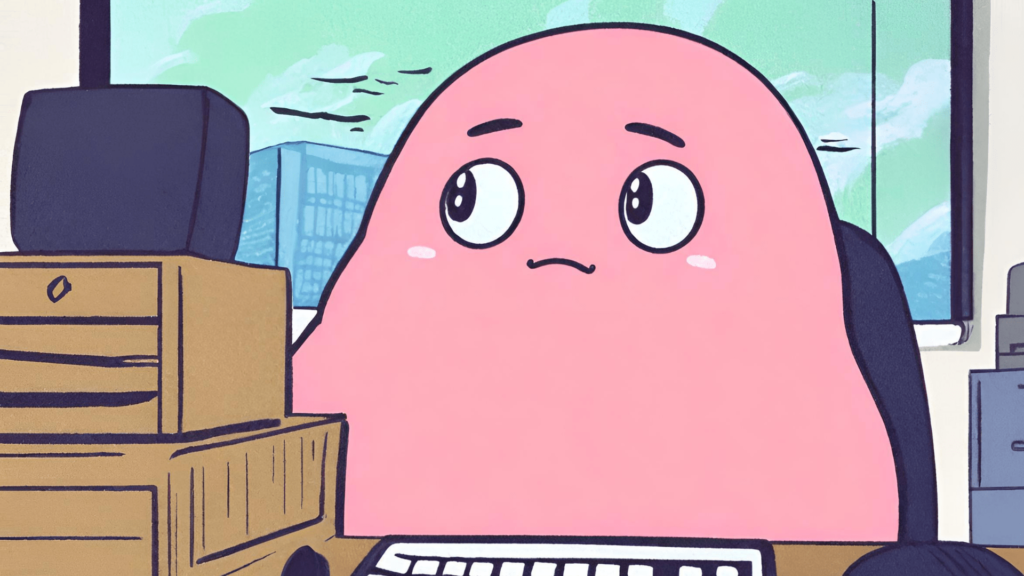
Source: Canva
Everything always looks clearer on hindsight. Looking back, it wasn’t my first job that caused my anxiety. It was my own expectations, and how I chose to regulate my emotions and direct myself that resulted in me feeding my anxiety.
At the end of the day, your external environment can only affect you if you allow it to. I’m a believer in the saying: What you choose to put your energy in will grow. Years ago, I put way too much energy into things that fed my negativity and anxiety.
If I were to start again, here’s what I would do to better govern myself.
1. Not being too emotionally invested in my work, and being more professional
I took my first job too personally and may have tied too much of my work and progress to my self-worth. Oftentimes I would feel terrible if I didn’t do a good job, or brood over every small, negative comment that came my way.
In hindsight, I should have better compartmentalise my emotions. I shouldn’t let my emotions govern how I work, and I should have had a more systematic approach to how I organised my time.
2. Never prioritise work above things in my life that were more important
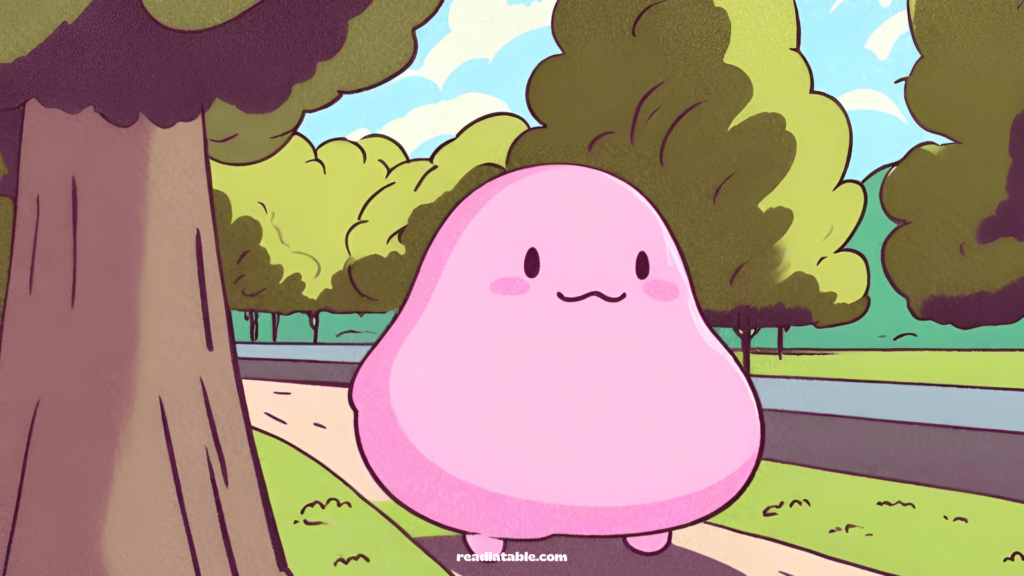
Source: Canva
Along the same vein, while I appreciated the sense of community that came with my workplace, I should have had a clearer distinction between work and my personal life. Trying too hard to fit in came at the expense of my health and the relationships with people that actually mattered to me.
Four years on, I realise that the people who stick are the ones that require little to no effort. I also came to understand that producing good work doesn’t always have to come at the expense of yourself and that no job is worth risking my health, well-being, and time with my loved ones for.
Everything at work always seems urgent, but the glaring truth is that nothing truly bad will happen if we make a client or our boss wait. We are also all replaceable, so there’s no need to hold too much value and pride to vanity metrics like your role or position.
3. Setting proper boundaries at work
Along with organising my time and energy a little better, I should have gone into my first job with a clear mind on what my boundaries are.
This can mean something very practical – for example, not working on weekends, or something a little more values-based. For instance, had I known that a project that I was asked to undertake went against my values, I should have been clear on what my boundaries are, and rejected the project based on my values. This would probably give me better peace of mind and allay certain anxieties.

Read More: 10 Small Habits That Helped Me With My Happiness and Well-Being
4. Knowing how to say no, while being kind and non-abrasive
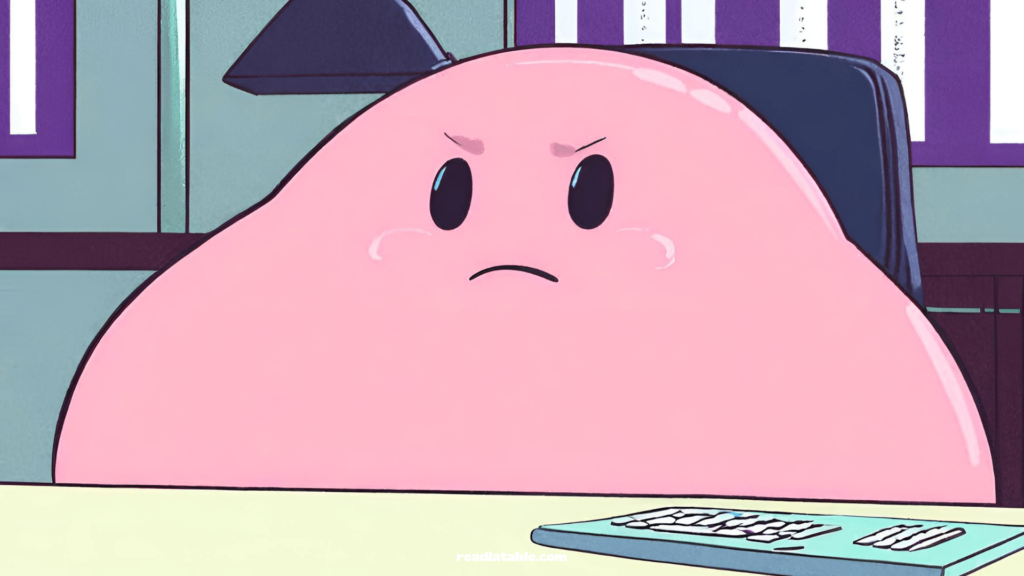
Source: Canva
While I am usually a direct person, one thing I realised coming out from my first job is that I can be quite abrasive and not the most tactful person.
For example, I have the tendency to point out inefficiencies as it is, without realising that saying things like “this is super inefficient, how can we keep doing things like this?” may inevitably put down others, and bring down a group’s morale.
My behaviour has the ability to cause someone else to feel anxious or bad, and I wish I had the maturity to govern myself to respond better amidst different stressors.
Coping with anxiety today: Four years later
It was not until a year later did I muster the courage to seek help for anxiety. I have been actively working on how to regulate my emotions better, so that its negative effects no longer seep into my personal and professional life.
Four years on, I’m still facing the remanent effects of being anxious. I lay in bed wide awake every couple of days in a month, with a noisy mind that can’t seem to quieten down. I sometimes dissociate in uncomfortable social situations, and there are times when I get extremely anxious and scattered over things that are so, considerably small. I’m still a work in progress, but I’m happy, and I am where I need to be.
If you’ve been experiencing stress or anxiety, or if you simply need someone to talk to, you’re not alone. Drop me a message – I’d love to see how I can help you, or you may look through this list of Free and Affordable Therapy in Singapore to get the help that you need.

